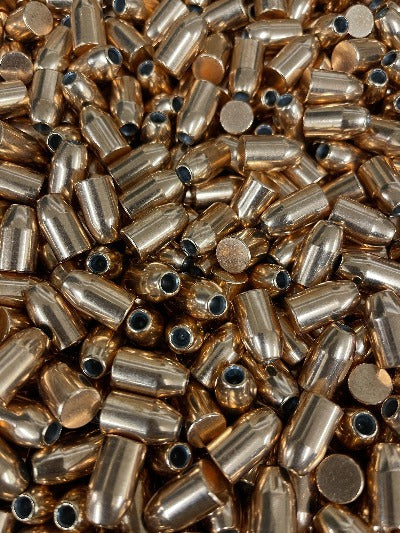Have you been with a journey, cruising down the open highway with the wind within your hair and also the sun on your own face? Everything seems perfect, until suddenly, you hear a loud pop and your car begins to sputter. You pull to the medial side with the road, understanding that you've uses up gas.

Imagine if you have to be able to refill your own gas tank, making sure you won't ever be used up again. Reloading your own ammo is a lot like that - it offers a superior the power to generate your own method of getting ammunition, making sure that you don't ever need to count on somebody else for your shooting needs.
Why should you work with reloading your personal ammo? Well, let's study the rewards together and discover why it might try to be the game-changer you've been seeking.
The Benefits of Reloading Ammo
There are lots of benefits to reloading your own personal ammo.
To start with, reloading allows you to have complete control of the product quality and gratification of your respective ammunition. You can choose the specific components, including the primer, powder, and bullet, making sure they meet needed specifications. This a higher level customization permits you to tailor your loads for your specific firearm and shooting needs, producing improved accuracy and consistency.
Additionally, reloading your individual ammo can save you money in the long term. While there may be a primary acquisition of reloading equipment, the charge per round can be significantly lower compared to buying factory-made ammunition.
Reloading also gives you the chance to recycle and reuse spent casings, reducing waste and adding to a much more sustainable shooting practice.
Essential Equipment for Reloading
To successfully reload your own personal ammo, you'll need a few essential pieces of equipment.
The first item you will need is often a reloading press. This product is used to resize and deprime spent brass casings, or even seat new bullets and make use of the necessary crimp.
A reloading manual can also be crucial, because it provides detailed instructions and knowledge around the proper reloading techniques and recipes.
Additionally, a set of dies is needed to perform the various operations linked to reloading. These dies are specific to each caliber and so are accustomed to resize, expand, and seat bullets.
Other essential equipment incorporates a powder scale for accurate measurement of powder charges, an incident trimmer to ensure uniform case length, as well as a priming tool for inserting fresh primers into the casings.
With one of these essential tools, you'll be well-equipped to reload your own ammo.
Learning the Reloading Process
To be aware of the reloading process, you'll want to familiarize yourself with each step and the equipment involved.
The process starts off with cleaning and inspecting your spent brass casings.
Next, you resize the casings to make certain are put properly from the firearm chamber.
After resizing, you'll want to eliminate the spent primer and change it out once you get your one.
Then comes the step of measuring and adding the correct quantity of gunpowder to the casing.
This really is then seating a fresh bullet in to the casing by using a reloading press.
Finally, you should crimp the bullet securely in position.
It is advisable to do not forget that precision and attention to detail are very important through the reloading method to ensure safe and reliable ammunition.
Security precautions for Reloading Ammo
Before starting reloading your own ammo, you need to take necessary safety measures.
These precautions are very important to be sure your personal safety and also the safety of these surrounding you. First of all, always wear proper eye protection and hearing protection. Reloading involves utilizing small, delicate components which enable it to produce exposure to noise, so protecting your eyes and ears is important.
Additionally, make sure your reloading area is well-ventilated in order to avoid the build-up of harmful fumes. Keep all flammable materials, for example primers and powders, faraway from heat sources and open flames to avoid accidents.
It's also important to follow the instructions furnished by producer of your reloading equipment and employ the right components for your specific firearm.
More info about reloading basics for beginners view the best website
